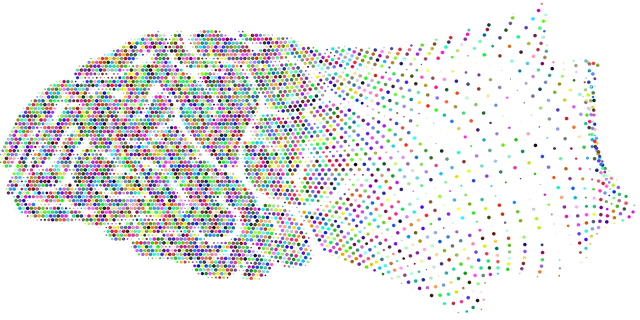Program evaluation in Colorado Springs prioritizes optimizing alcohol abuse therapy through data-driven strategies. By assessing initiatives like Empathy Building Strategies and cultural competency training, professionals tailor services to diverse community needs. This involves tracking metrics such as self-care practices, emotional regulation, and trauma support using both quantitative (surveys, tests) and qualitative (focus groups, interviews, observations) methods. The goal is to personalize interventions, ensure treatment effectiveness, and enhance clients' overall well-being in areas like Colorado Springs Alcohol Abuse Therapy. Continuous improvement based on feedback from all stakeholders ensures the program remains impactful and accessible over time.
In Colorado Springs, addressing mental wellness through effective program evaluation is paramount, especially in managing issues like alcohol abuse. This article delves into the crucial methods for evaluating mental health programs, focusing on client outcomes, qualitative insights, and quantitative analysis. We explore metrics, measurement tools, and statistical techniques to gauge program effectiveness. Additionally, it highlights the importance of continuous improvement through feedback mechanisms, ensuring services adapt to meet the diverse needs of individuals seeking Colorado Springs alcohol abuse therapy.
- Understanding the Need for Program Evaluation in Mental Health
- Assessing Client Outcomes: Metrics and Measurement Tools
- Qualitative Research Methods for Insightful Feedback
- Quantitative Analysis: Statistical Techniques for Program Effectiveness
- Continuous Improvement: Implementing Feedback for Better Services
Understanding the Need for Program Evaluation in Mental Health

In the realm of mental wellness, program evaluation is a cornerstone for ensuring effective care and improved outcomes, especially in urban centers like Colorado Springs where diverse populations seek support for various mental health challenges, including Colorado Springs Alcohol Abuse Therapy. Evaluating mental health programs is crucial as it provides valuable insights into their effectiveness, identifies areas for improvement, and helps allocate resources efficiently. This process involves assessing the program’s impact on individuals’ well-being, satisfaction levels, and behavioral changes, ensuring that services align with clients’ needs.
By implementing robust evaluation methods, mental health professionals can gauge the success of interventions such as Empathy Building Strategies, Healthcare Provider Cultural Competency Training, and Compassion Cultivation Practices. These evaluations are essential to understanding what works best for different demographics and adapting programs accordingly. Through this data-driven approach, mental wellness initiatives in Colorado Springs can be refined, enhancing access to quality care and ultimately fostering better outcomes for those seeking support for alcohol abuse and other mental health concerns.
Assessing Client Outcomes: Metrics and Measurement Tools

Evaluating the outcomes of mental wellness programs is a multifaceted process that goes beyond simple satisfaction surveys. At centers like those offering Colorado Springs Alcohol Abuse Therapy, assessing client success requires a nuanced approach. Metrics should extend beyond traditional measures like attendance or treatment adherence to capture the depth and breadth of recovery. This includes tracking improvements in self-care practices, emotional regulation, and trauma support services—key areas that contribute to lasting wellness.
Effective measurement tools often employ a combination of quantitative data (like surveys and tests) and qualitative methods (such as individual therapy sessions or focus groups). By collecting and analyzing these diverse data points, mental health professionals can gain a comprehensive understanding of client progress. This enables them to tailor interventions, ensure treatment efficacy, and ultimately foster healthier lives for those seeking support—whether it’s through Colorado Springs Alcohol Abuse Therapy or other specialized services.
Qualitative Research Methods for Insightful Feedback

Qualitative research methods offer a powerful tool for gathering insights and feedback within the realm of mental wellness programs, particularly when addressing issues like Colorado Springs alcohol abuse therapy. These techniques allow for in-depth exploration of individuals’ experiences, perceptions, and emotions related to their mental health journey. By employing methods such as focus groups, interviews, and observation, researchers can uncover nuanced understandings of what promotes emotional well-being and identifies areas for improvement.
Focus group discussions, for instance, facilitate a collaborative environment where participants share their perspectives on various aspects of mental wellness programs, including therapy accessibility, support systems, and coping strategies. Interviews provide an opportunity for individuals to narrate their personal stories, highlighting the impact of specific interventions or services. Moreover, observational studies can offer valuable insights into the cultural and social dynamics surrounding mental health, informing the development of more inclusive public awareness campaigns that target at-risk populations effectively. These qualitative approaches are instrumental in tailoring mental wellness initiatives to meet the unique needs and challenges faced by individuals seeking support, ultimately enhancing the overall effectiveness of these programs.
Quantitative Analysis: Statistical Techniques for Program Effectiveness

Evaluating the effectiveness of mental wellness programs is a critical step in ensuring their success and positive impact on individuals’ lives. Quantitative analysis offers robust statistical techniques to measure program outcomes, particularly in areas like mood management and social skills training, which are essential components of Colorado Springs Alcohol Abuse Therapy. Researchers can employ various methods such as surveys, questionnaires, and pre-post testing to gather data from participants before and after the program’s implementation.
By comparing these measurements, professionals can assess the program’s impact on mental health outcomes. For instance, risk assessment for mental health professionals is a valuable metric that can be quantified through statistical analysis. This approach helps in identifying improvements in symptoms, behavior, or overall well-being among participants. Such data-driven insights are crucial for refining and improving mental wellness programs to better serve individuals seeking support for issues like alcohol abuse.
Continuous Improvement: Implementing Feedback for Better Services

In the context of Colorado Springs Alcohol Abuse Therapy, continuous improvement is a cornerstone of effective mental wellness program evaluation. Gathering and acting upon feedback from clients, therapists, and community stakeholders plays a pivotal role in enhancing service delivery. By implementing this feedback, programs can tailor their approaches to better meet the unique needs of individuals seeking support for alcohol abuse. Continuous improvement ensures that services remain relevant, accessible, and impactful over time.
For instance, client feedback might highlight the need for specialized mood management techniques or conflict resolution skills training, leading therapists to integrate these elements into existing therapy models. Similarly, community outreach program implementation can be enhanced by listening to local organizations’ insights, ensuring that initiatives resonate with the community and address pressing mental health concerns. This dynamic approach fosters a culture of responsiveness, where Colorado Springs Alcohol Abuse Therapy programs evolve and grow alongside those they serve.
In evaluating mental wellness programs, such as those offered in Colorado Springs Alcohol Abuse Therapy, a multifaceted approach is essential. By combining qualitative and quantitative methods, we gain valuable insights into client outcomes and program effectiveness. Assessing both the art and science of therapy enables us to continuously improve services, ensuring that support remains tailored to individual needs. Through rigorous evaluation, we can ultimately foster better mental health outcomes and enhance the overall therapeutic experience.














